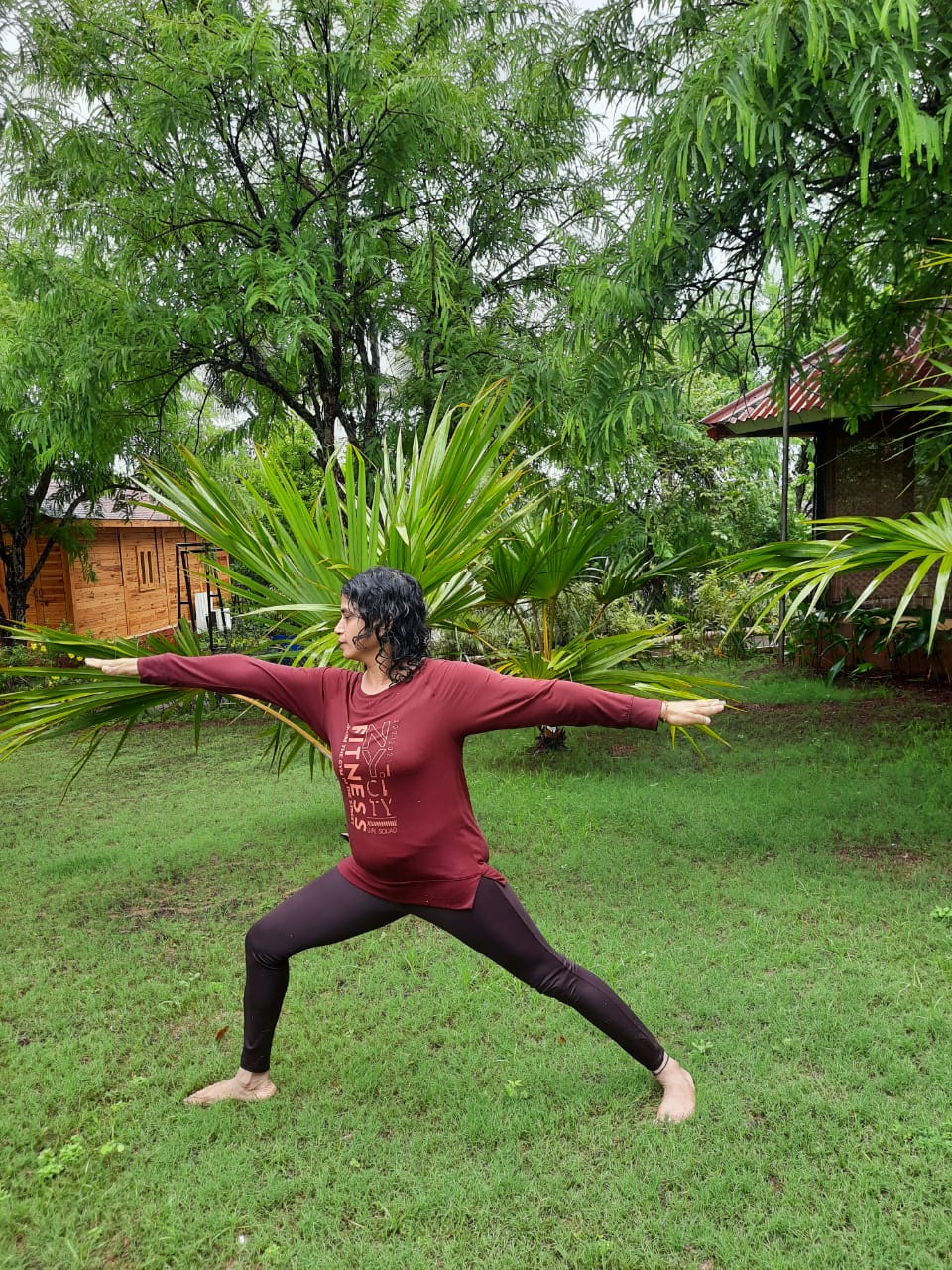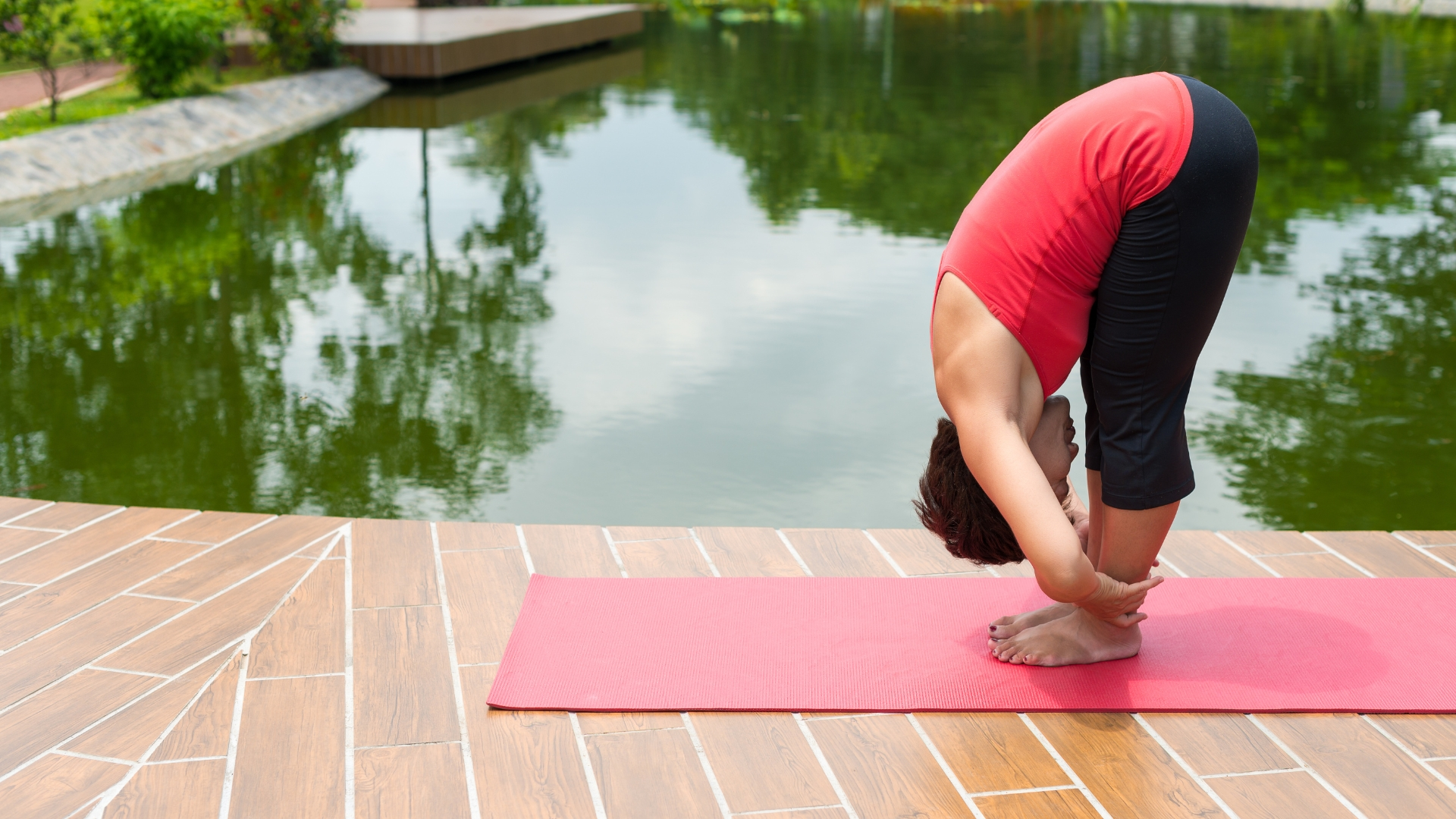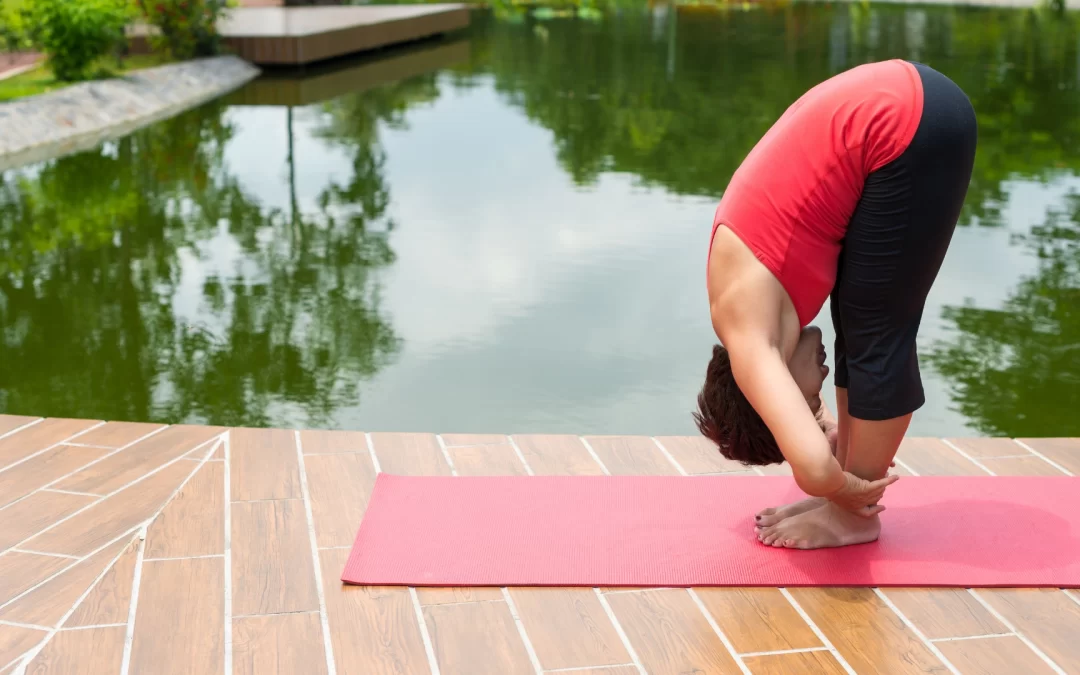Yoga for Better Blood Sugar
Do you worry about your blood sugar levels? Maybe you’ve been told they’re too high, or you’re already living with diabetes. If so, you’re not alone. Millions of people around the world are looking for natural ways to help manage their blood sugar. One in five adults aged 30+ has diabetes in India, and one in three has hypertension, per a recent NFHS‑5 analysis of 1.17 million adults. Among those with diabetes, 43% also have high blood pressure, and over 25% of those with hypertension have diabetes
The good news is that something as simple and enjoyable as yoga can make a real difference. Let’s explore how yoga can help keep your blood sugar in check and how you can get started right from home.

How Yoga Helps Your Blood Sugar
When your blood sugar (glucose) gets too high, it can cause all kinds of problems in your body. Over time, high blood sugar can damage your eyes, kidneys, nerves, and heart.
Yoga works in several amazing ways to help:
Reduces Stress When you’re stressed, your body releases hormones that can raise your blood sugar. The calm, deep breathing in yoga tells your body to relax, which can help lower these stress hormones.
Improves Insulin Sensitivity Insulin is the key that unlocks your cells so sugar can move from your blood into your cells. Yoga helps make your cells more sensitive to insulin, so it works better.
Stimulates Your Pancreas Certain yoga poses gently massage your internal organs, including your pancreas, which makes insulin.
Muscle Muscles use glucose for energy. The more muscle you have, the more glucose gets used up, which helps keep your blood sugar levels down.
Simple Yoga Moves for Blood Sugar Control
You don’t need to be super flexible or fit to start seeing benefits. These simple poses can help:
- Standing Forward Bend (Uttanasana) This pose sends fresh blood to your pancreas. Stand with feet hip-width apart, then bend forward from your hips, letting your head and arms hang down. Bend your knees if needed.
- Seated Spinal Twist (Ardha Matsyendrasana) This gentle twist massages your internal organs. Sit with legs extended, bend your right knee and place your foot outside your left thigh. Twist to the right, placing your left elbow outside your right knee.
- Bridge Pose (Setu Bandhasana) This pose stimulates your pancreas and thyroid. Lie on your back with knees bent and feet flat on the floor. Lift your hips toward the ceiling while keeping your shoulders on the floor.

Finding the Right Practice for You
Everyone’s body is different. That’s why finding the right kind of yoga practice matters, especially when you’re managing blood sugar.
Online yoga classes can help you find the perfect fit for your needs. With online classes, you can:
- Try different styles and teachers until you find what works best
- Practice at your own pace
- Modify poses to suit your body
- Build confidence before joining in-person classes
Special Yoga for Diabetes Management
If you’re already living with diabetes, there are Online Yoga Classes For Diabetes specifically designed with your needs in mind. These specialized classes:
- Focus on poses known to help with blood sugar control
- Include modified poses that are safe for those with diabetes-related complications
- Teach breathing techniques that can help during blood sugar fluctuations
- Build a community of people who understand your journey
Also read How Does Yoga Help in Reducing Diabetes-Related Fatigue?
Creating a Regular Practice
Consistency is key when using yoga to help manage blood sugar. Here’s a simple plan to get started:
Morning Mini-Practice (10 minutes) A short morning practice can set your metabolism for the day and help prevent blood sugar spikes after breakfast.
After-Meal Moves (5 minutes) Even just 5 minutes of gentle movement after meals can help your body process glucose more effectively.
Evening Unwinding (15 minutes) Evening practice can help lower stress hormones before bed, which can prevent overnight blood sugar rises.
Remember, a little yoga done regularly is much more effective than a long session once in a while.
Beyond the Poses: The Full Picture
While yoga can be a powerful tool, it works best as part of an overall approach:
Breath Work Specific breathing practices (pranayama) can have immediate effects on your nervous system and metabolism. Simple alternate nostril breathing for 5 minutes can help balance your system.
Meditation Regular meditation has been shown to improve how the body handles stress, which directly affects blood sugar levels.
Mindful Eating Many yoga traditions include mindfulness around food. Eating slowly and paying attention to your food can help prevent overeating and blood sugar spikes.
Real People, Real Results
Many people with blood sugar concerns have found help through regular yoga practice:
“After three months of practicing yoga four times a week, my doctor reduced my diabetes medication. My fasting blood sugar went from 160 to 118!” – Robert, 58
“I was diagnosed with prediabetes last year. Between diet changes and online yoga classes three times a week, my numbers are now in the normal range.” – Maria, 47
Getting Started Is Easy
You don’t need fancy equipment or previous experience to begin your yoga journey:
- A quiet space about the size of a yoga mat
- Comfortable clothes you can move in
- A yoga mat (though a carpet works to start)
- A device to watch your online class
- 10-30 minutes a few times a week
Before starting, especially if you have diabetes, check with your doctor. They’ll likely be supportive but might have specific advice for your situation.

Tracking Your Progress
As you begin your yoga practice, consider keeping track of:
- How you feel before and after practice
- Your blood sugar readings before and after yoga sessions
- Your energy levels throughout the day
- Any changes in medication needs (always work with your doctor on this)
Many people notice improvements within just a few weeks of regular practice.
Safety First
If you have diabetes or other blood sugar issues, keep these safety tips in mind:
- Have a snack handy in case of low blood sugar
- Check your blood sugar before and after practice
- Stay hydrated
- Avoid very hot yoga styles if you have neuropathy
- Be extra careful with balance poses if you have vision issues
- Move slowly when changing positions
The Journey to Better Health
Managing blood sugar is a journey, not a destination. There will be ups and downs along the way. Yoga teaches us to be patient with ourselves and our bodies.
The practices you learn in Online Yoga Classes can become tools you use not just during class time, but throughout your day. The deep breathing you practice on your mat can help you stay calm during a stressful meeting. The mindfulness you develop can help you make better food choices.
Over time, these small changes add up to big improvements in how your body handles glucose.
Yoga isn’t a replacement for medical care, but it can be a powerful partner in your journey toward better health. By combining traditional wisdom with modern understanding of the body, yoga offers a gentle path to better blood sugar balance, one breath at a time.
Inquiry
If you have any questions, please feel free to reach out. We’ll be glad to help!

